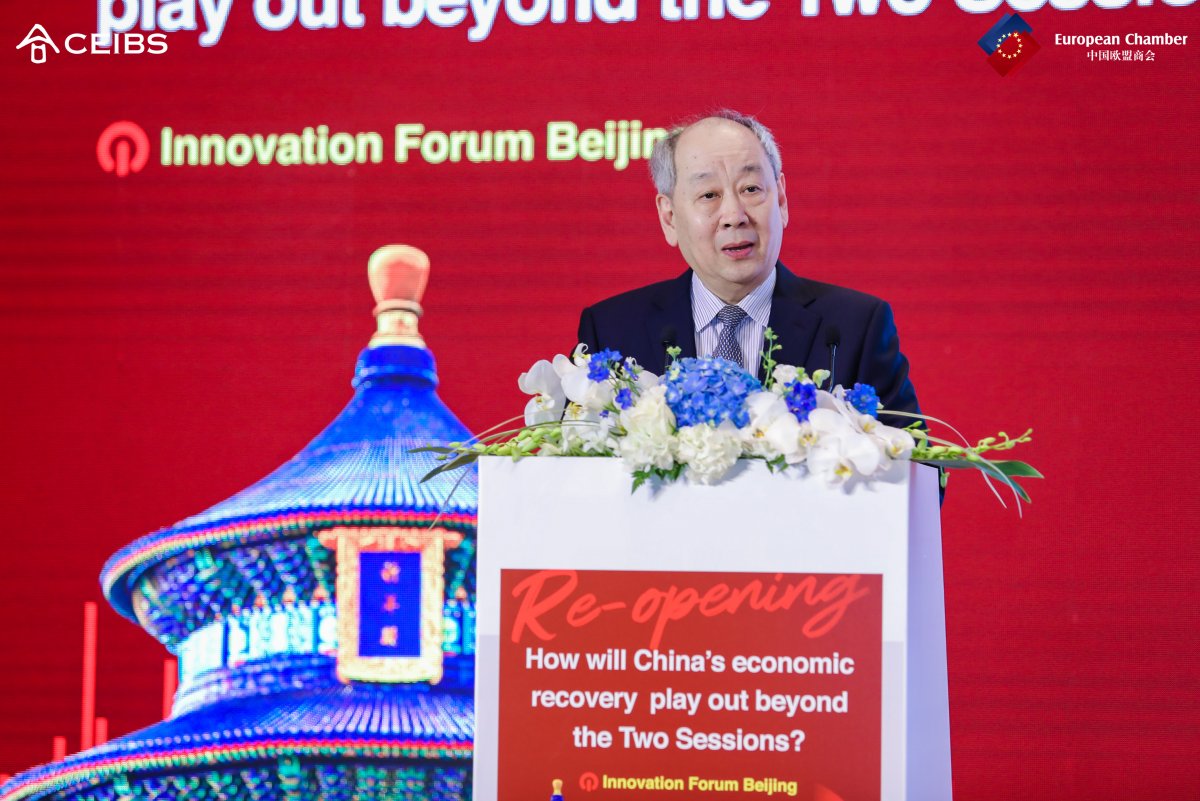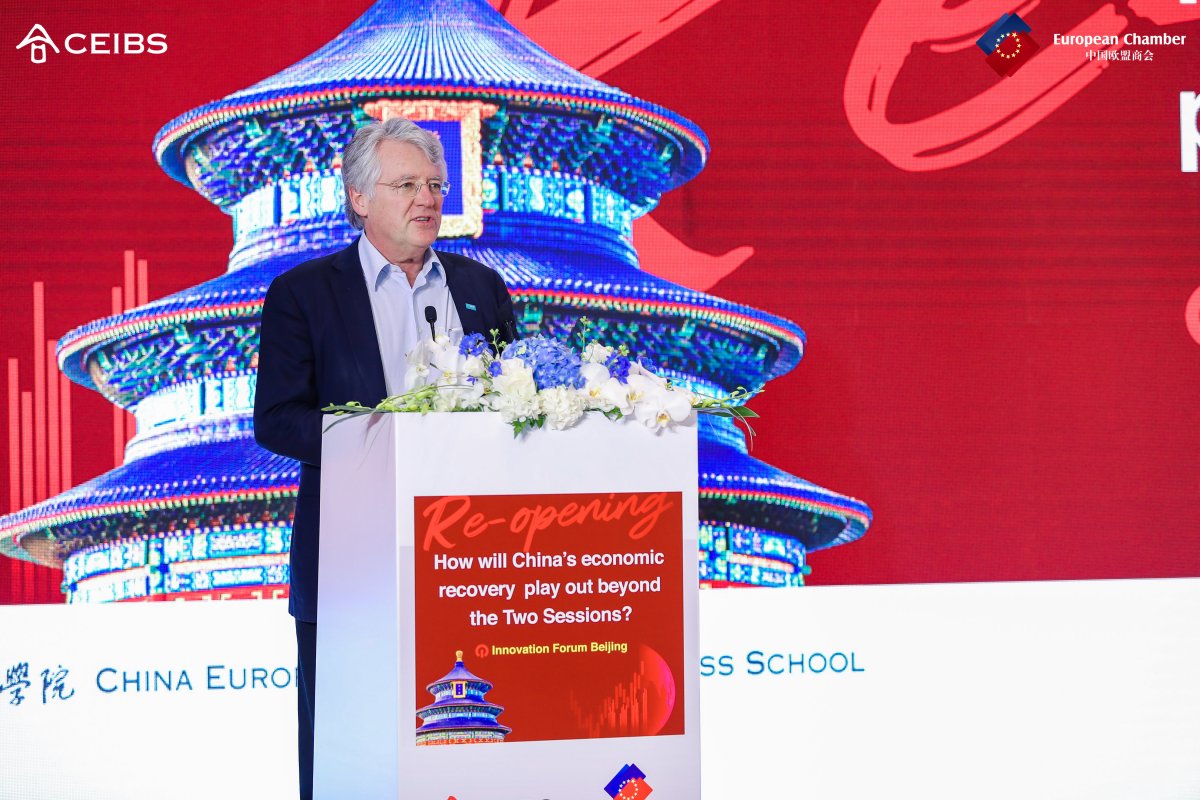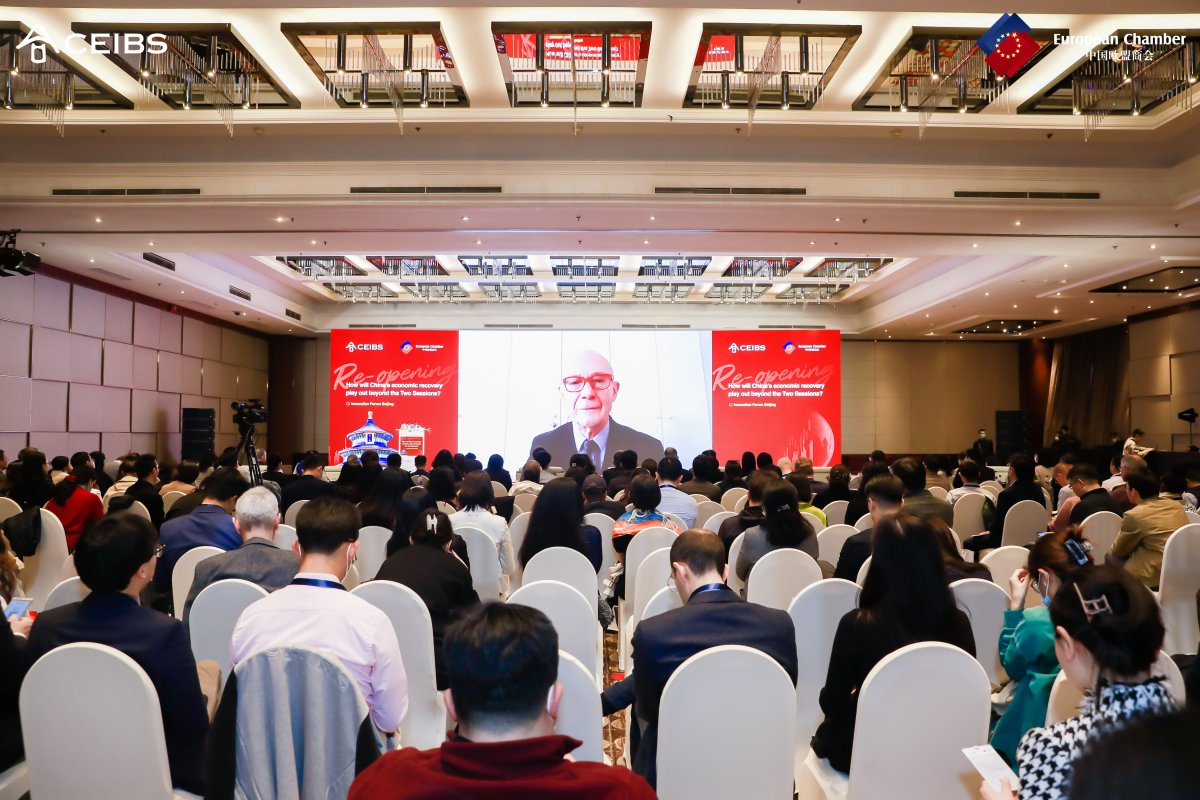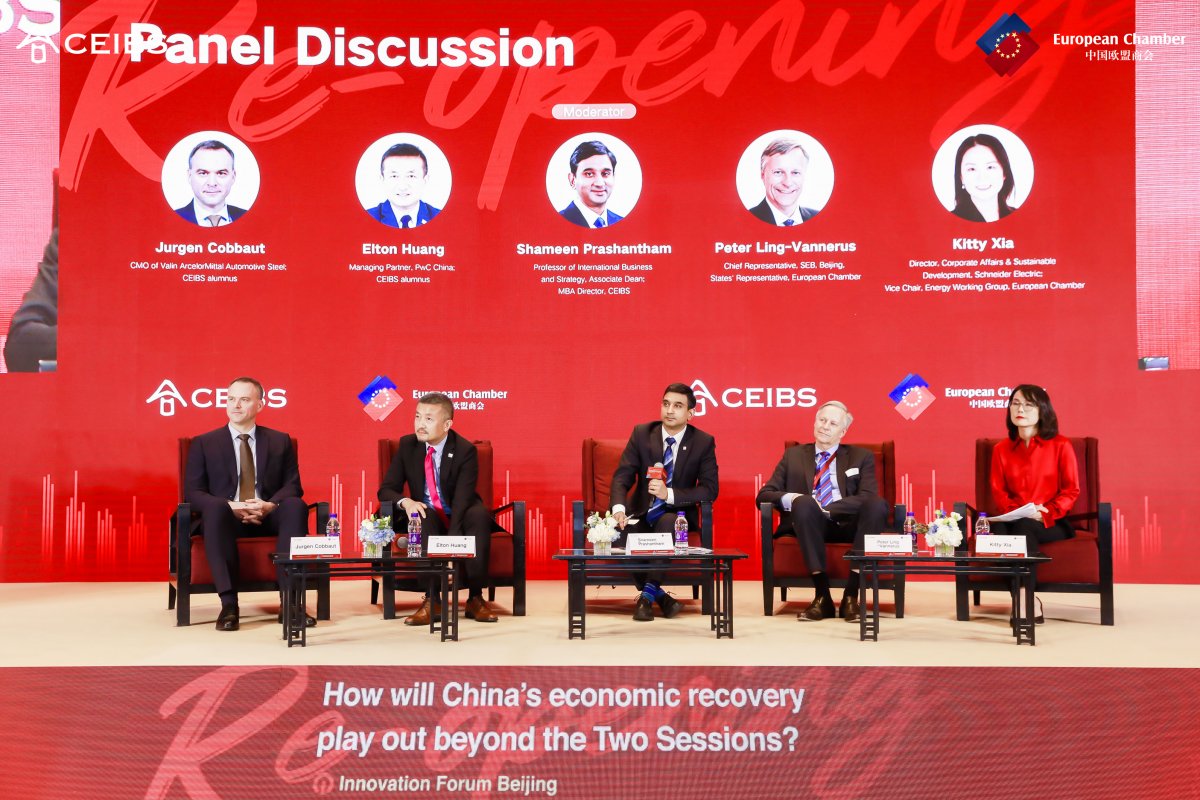Trade, climate and geopolitics will dictate China’s path to economic recovery
March 31, 2023. Beijing – Global demand, decarbonization and international relations will factor heavily in China’s post-pandemic economic growth and profoundly affect those doing business here, according to views shared during an innovation forum in Beijing today.
The event, co-organized by CEIBS and the European Chamber, welcomed nearly 200 participants for talks and a panel discussion on the theme of How will China’s economic recovery play out beyond the Two Sessions?
“Faced with significant headwinds, China needs to bring positive change for the world economy. It is clear that the decisions China makes will have a strong impact on foreign businesses operating in and engaging with China,” CEIBS Vice President and Co-Dean Zhang Weijiong said in a welcome speech.
As such, it is necessary for businesses and business leaders to gain a firm understanding of the complex issues facing China’s economy in order to navigate competing risks and seek out new opportunities, Prof. Zhang added.
Next, European Chamber President Joerg Wuttke offered a welcome speech in which he said that consumption, foreign direct investment and geopolitics will continue to dominate the minds of foreign businesses in China for the foreseeable future.
“You really have to be not just a manager, but also a policy-savvy person to maneuver and steer your company through these troubled waters,” Mr. Wuttke said, adding that, “We have to now reconnect China, we have to actually communicate to our headquarters what China looks like [and then] we have to come up with an answer to the question of ‘Shall I stay or shall I go?’”
In the first keynote speech of the event, CEIBS Professor of Economics and author of Catching up to America: Culture, Institutions and the Rise of China Zhu Tian said that, when considering China’s post-pandemic economic trajectory, what matters most is the long term, not the short term.
“Can China continue to grow faster than most other countries, say, at 5% a year over the next 10-20 years? [...] If that is the case, it is going to have a huge impact on all of us,” Prof. Zhu said.
He continued that although consumption, investment and exports often grab the headlines, the strength of China’s long-term growth instead stems from its rapid accumulation of physical and human capital and new technologies.
“China’s rapid long-term growth in per capita GDP [is the result of] higher savings than other developing countries; while a relatively higher quality of education has allowed China to absorb Western technologies and develop indigenous innovation capacity, leading to faster technological catchup,” he said.
As such, he explained, China’s comparative strength in economic development has been – and likely will continue to be – more cultural than political or tactical.
“Fluctuation may be inevitable, and growth can be slowed down somewhat by geopolitics or policy mistakes; but as long as China stays the course of market reforms and opening up [...], the country can still achieve a relatively high long-term growth rate in the next 10-20 years,” he concluded.
Speaking via a pre-recorded message, former Director-General of the World Trade Organization and CEIBS Distinguished Professor Pascal Lamy also offered a look at China’s economic outlook in a global context.
“From a broad picture perspective, I see the Chinese economy facing two main challenges. The first one is avoiding what economists call the ‘middle income trap,’ and the second one is achieving its decarbonization,” Prof. Lamy said.
The middle income trap describes a situation where a country fails to transition to a high-income economy due to rising production costs and declining competitiveness. Decarbonization is central to combating global climate change.
The issue in overcoming these and other challenges, Prof. Lamy added, is not with economic globalization, but with political tensions and pressures to sever interdependence.
“China needs vibrant world growth, and its goal should be to rebalance geopolitical and geo-economic forces. If geopolitics were to prevail, I’m afraid the prospect for world growth will be lower than otherwise – and lower world growth in the future, inevitably means a lower growth for China,” he said.
Given the size of its economy and level of influence, Prof. Lamy continued, China is now in a position to take on greater responsibility in addressing global issues.
“This is where the EU and China have something in common. Both of us should try and do our best so that [this] relationship goes in the right direction, rather than the wrong one. And this, in my view, is the defining issue, which we have to work on together,” he concluded.
The event wrapped with a panel discussion moderated by CEIBS MBA Programme Director and Professor of International Business and Strategy Shameen Prashantham featuring CEIBS alumni and representatives from PwC China, SEB, Valin ArcelorMittal Automotive Steel and Schneider Electric.


















